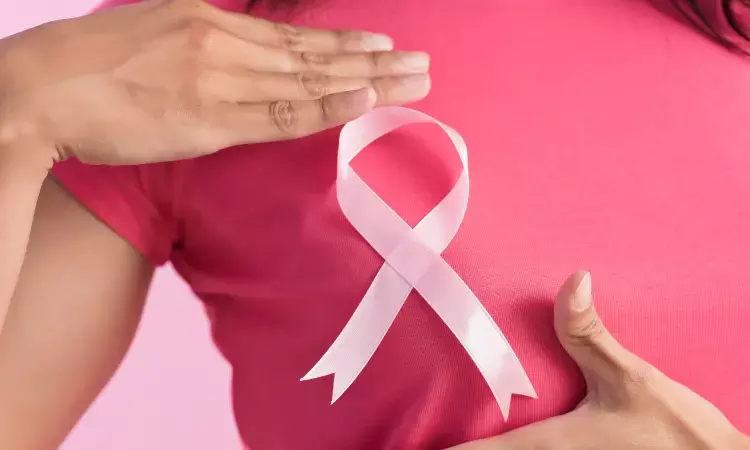- Home
- Medical news & Guidelines
- Anesthesiology
- Cardiology and CTVS
- Critical Care
- Dentistry
- Dermatology
- Diabetes and Endocrinology
- ENT
- Gastroenterology
- Medicine
- Nephrology
- Neurology
- Obstretics-Gynaecology
- Oncology
- Ophthalmology
- Orthopaedics
- Pediatrics-Neonatology
- Psychiatry
- Pulmonology
- Radiology
- Surgery
- Urology
- Laboratory Medicine
- Diet
- Nursing
- Paramedical
- Physiotherapy
- Health news
- Fact Check
- Bone Health Fact Check
- Brain Health Fact Check
- Cancer Related Fact Check
- Child Care Fact Check
- Dental and oral health fact check
- Diabetes and metabolic health fact check
- Diet and Nutrition Fact Check
- Eye and ENT Care Fact Check
- Fitness fact check
- Gut health fact check
- Heart health fact check
- Kidney health fact check
- Medical education fact check
- Men's health fact check
- Respiratory fact check
- Skin and hair care fact check
- Vaccine and Immunization fact check
- Women's health fact check
- AYUSH
- State News
- Andaman and Nicobar Islands
- Andhra Pradesh
- Arunachal Pradesh
- Assam
- Bihar
- Chandigarh
- Chattisgarh
- Dadra and Nagar Haveli
- Daman and Diu
- Delhi
- Goa
- Gujarat
- Haryana
- Himachal Pradesh
- Jammu & Kashmir
- Jharkhand
- Karnataka
- Kerala
- Ladakh
- Lakshadweep
- Madhya Pradesh
- Maharashtra
- Manipur
- Meghalaya
- Mizoram
- Nagaland
- Odisha
- Puducherry
- Punjab
- Rajasthan
- Sikkim
- Tamil Nadu
- Telangana
- Tripura
- Uttar Pradesh
- Uttrakhand
- West Bengal
- Medical Education
- Industry
Lower-Dose Regimens of Exemestane Effective in Postmenopausal Patients With Stage 0 to II ER-Positive Breast Cancer

According to research reported in JAMA Oncology, based on findings from a phase IIb trial, 25 mg exemestane thrice weekly is noninferior to the standard dosing of 25 mg once daily pertaining to reduction of serum estradiol among postmenopausal patients with stage 0 to II estrogen receptor (ER)-positive breast cancer.
Minimal effective dose is an important consideration in Successful therapeutic cancer prevention. According to previous research, Aromatase inhibitors decrease the incidence of breast cancer among high-risk women, but their usage is hampered due to adverse events.
A team of researchers compared the noninferiority percentage change of estradiol in postmenopausal women with estrogen receptor–positive breast cancer given exemestane, 25 mg, three times weekly or once weekly vs a standard daily dose with a noninferiority margin of −6%.
Solid-phase extraction, liquid chromatography–tandem mass spectrometry detection, National Cancer Institute terminology criteria, and immunohistochemistry were used in the study.
The study results are:
- Researchers randomized 180 women into 1 of the three arms. The study centre was two hospitals in Italy and 3 in US.
- The median age in the once-daily, 3-times-weekly, and once-weekly arms was 66, 63 and 65 years respectively.
- In the intention-to-treat population, including 171 women, the least square mean percentage change of serum estradiol was −89% (once daily, 55 women), −85% (three times weekly, 56 women) and −60% (once weekly, 60 women) respectively.
- The difference in estradiol percentage change was -3.6 % between the once-daily and 3-times-weekly arms, whereas, in compliant participants with 153 women, it was 2.0%.
- Considering secondary endpoints, Ki-67 and progesterone receptors were reduced in all arms.
- The 3-times-weekly arm had a better profile of Sex hormone–binding globulin and high-density lipoprotein cholesterol
- There were similar adverse events in all arms.
Concluding further, they said that giving 25 mg of exemestane thrice weekly in compliant patients was noninferior based on the findings of our study compared to the once-daily dosage in reducing serum estradiol.
The study results should be further investigated in prevention studies and in those women who are intolerant to daily dosing in the adjuvant setting.
Further reading:
Serrano D, Gandini S, Thomas P, et al. Efficacy of Alternative Dose Regimens of Exemestane in Postmenopausal Women With Stage 0 to II Estrogen Receptor–Positive Breast Cancer: A Randomized Clinical Trial. JAMA Oncol. Published online March 23, 2023. doi:10.1001/jamaoncol.2023.0089
BDS, MDS in Periodontics and Implantology
Dr. Aditi Yadav is a BDS, MDS in Periodontics and Implantology. She has a clinical experience of 5 years as a laser dental surgeon. She also has a Diploma in clinical research and pharmacovigilance and is a Certified data scientist. She is currently working as a content developer in e-health services. Dr. Yadav has a keen interest in Medical Journalism and is actively involved in Medical Research writing.
Dr Kamal Kant Kohli-MBBS, DTCD- a chest specialist with more than 30 years of practice and a flair for writing clinical articles, Dr Kamal Kant Kohli joined Medical Dialogues as a Chief Editor of Medical News. Besides writing articles, as an editor, he proofreads and verifies all the medical content published on Medical Dialogues including those coming from journals, studies,medical conferences,guidelines etc. Email: drkohli@medicaldialogues.in. Contact no. 011-43720751


